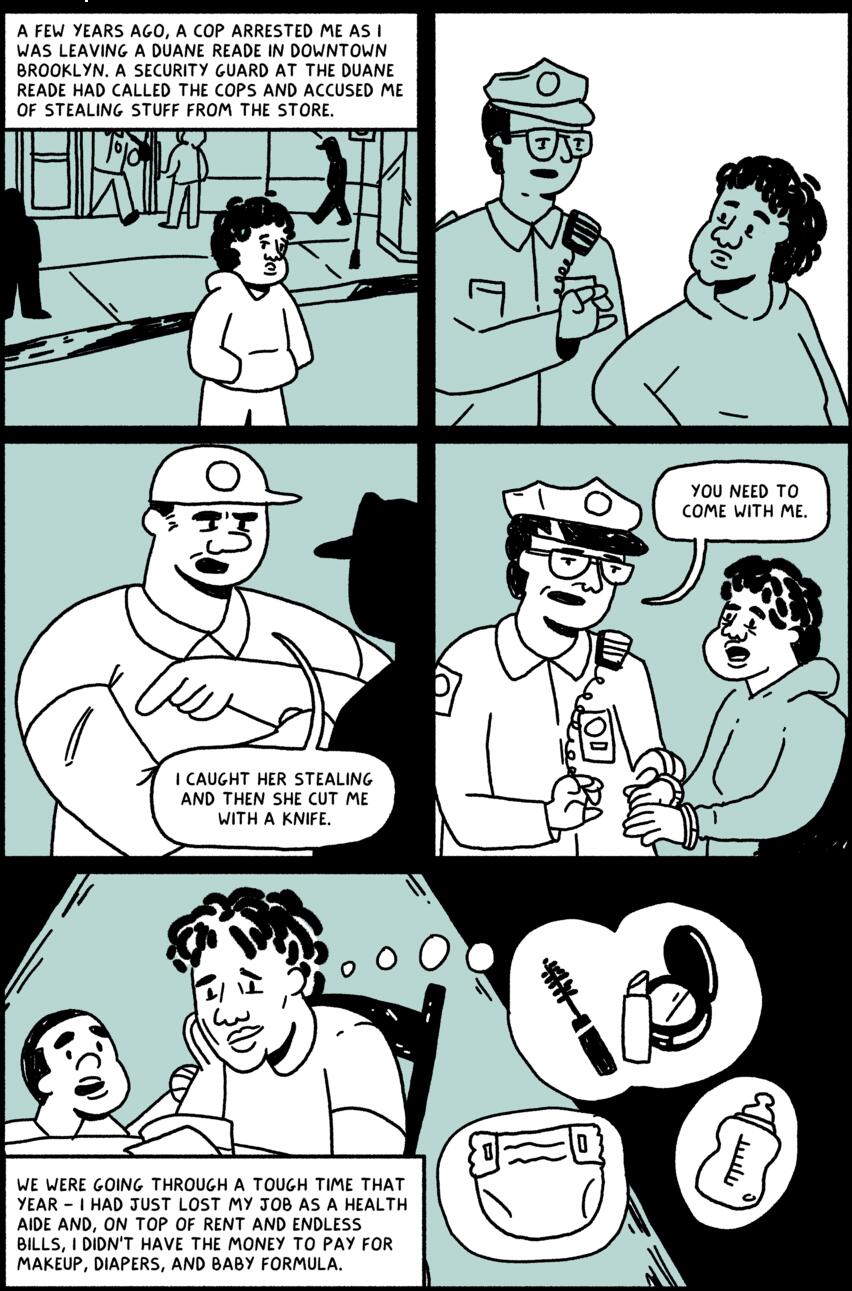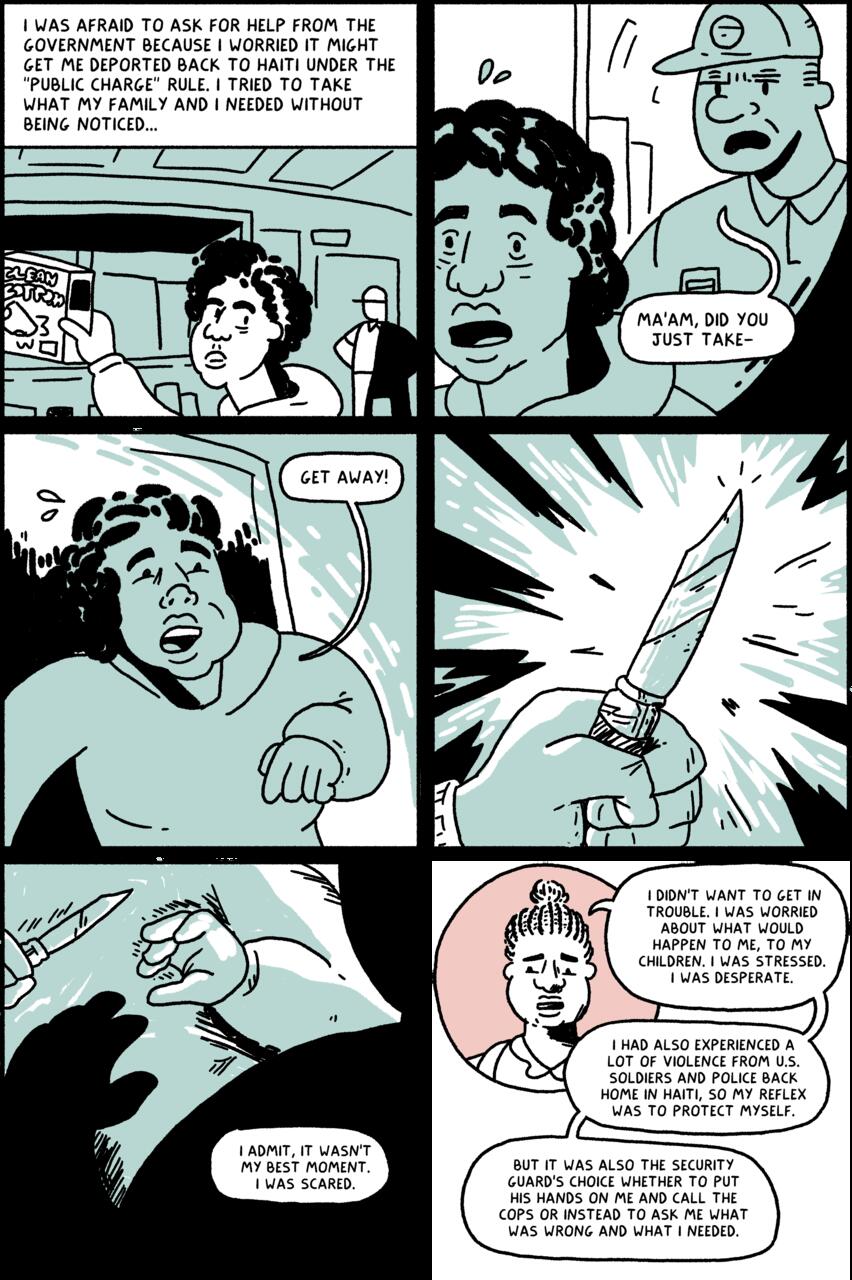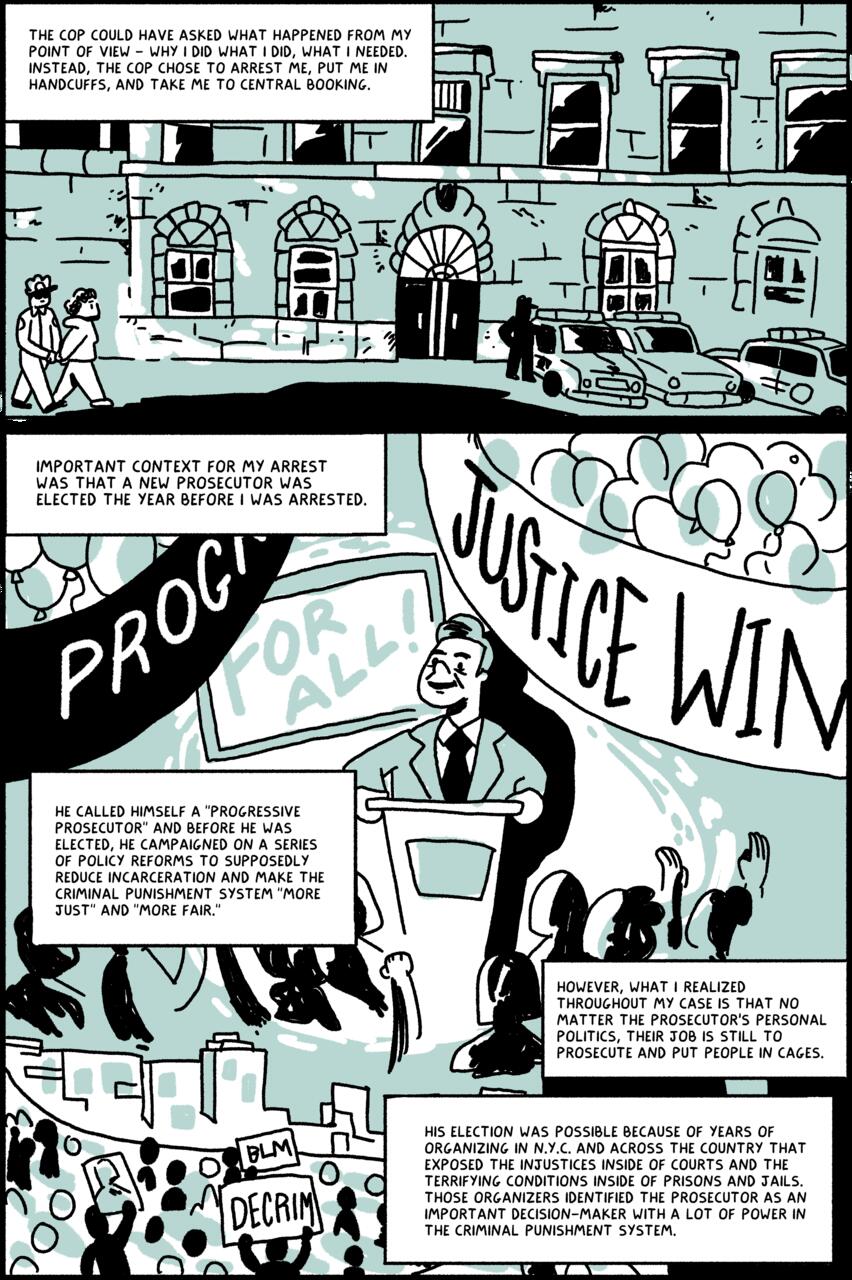Arrest
For more information on what happens during an arrest, visit Criminal Court 101: Arrest.
The first section describes Esther’s experience during the arrest phase of her story. Esther begins narrating her story, and the scene shifts to the recent past. A younger Esther, wearing a hoodie, walks out of a drug store and crosses a street. Esther narrates the scene. “A few years ago, a cop arrested me as I was leaving a Duane Reade in Downtown Brooklyn. A security guard at the Duane Reade had called the cops and accused me of stealing stuff from the store.” The Duane Reade security guard speaks with a police officer, who is about to arrest Esther. The guard says, “I caught her stealing and then she cut me with a knife.” The guard is a large man, wearing a baseball cap and a short-sleeve polo shirt. He points to the fresh cut on his arm. The police officer approaches Esther, handcuffing her and saying, “You need to come with me.” Esther looks up at him, shocked and dismayed. She continues narrating, setting up context for the arrest. “We were going through a tough time that year — I had just lost my job as a health aide and, on top of rent and endless bills, I didn’t have the money to pay for makeup, diapers, and baby formula.” In a quick flashback to before the incident, Esther sits at a kitchen table with a solitary light shining down. Her son approaches to ask her a question, but she is consumed with worry about things she can’t afford to buy for the family.
Esther continues, narrating, “I was afraid to ask for help from the government because I worried it might get me deported back to Haiti under the “Public Charge” rule. I tried to take what my family and I needed without being noticed…” Esther shows us the incident from her perspective to explain what happened. In the Duane Reade, she looks behind her to see if anyone notices as she puts a box of diapers in her bag. The security guard spots her and walks up behind Esther, surprising her. “Ma’am, did you just take…” the guard asks. “Get away!” Esther shouts, scared and backed up against the shelves. She draws a knife. It’s unclear what happens next, but the guard continues to approach Esther as she keeps the knife out in front of her. “I admit, it wasn’t my best moment. I was scared,” Esther narrates.” “I didn’t want to get in trouble. I was worried about what would happen to me, to my children. I was stressed. I was desperate. I had also experienced a lot of violence from U.S. soldiers and police back home in Haiti, so my reflex was to protect myself. But it was also the security guard’s choice whether to put his hands on me and call the cops or instead to ask me what was wrong and what I needed.”
The flashback continues, showing Esther in handcuffs being taken to the police precinct. She recounts how it went down, saying “The cop could have asked what happened from my point of view - why I did what I did, what I needed. Instead, the cop chose to arrest me, put me in handcuffs, and take me to central booking.” Important context for my arrest was that a new prosecutor was elected the year before I was arrested.” As Esther narrates there is a panel showing the election party for the new prosecutor. Banners and balloons adorn the room. One has the word “Progress!” Another exclaims “Justice Wins!” A crowd is assembled to hear the prosecutor speak. Esther says: “He called himself a “progressive prosecutor” and before he was elected, he campaigned on a series of policy reforms to supposedly reduce incarceration and make the criminal punishment system “more just” and “more fair.” However, what I realized throughout my case is that no matter the prosecutor’s personal politics, their job is still to prosecutor and put people in cages.” His election was possible because of years of organizing in N.Y.C. and across the country that exposed the injustices inside of courts and the terrifying conditions inside of prisons and jails. Those organizers identities the prosecutor as an important decision-maker with a lot of power in the criminal punishment system.” As Esther narrates, the panel shows a mass of protestors assembled against police brutality. The Arrest section of Esther’s story ends here.


